- Home
- Jennifer Ashley
A Mackenzie Clan Christmas Page 18
A Mackenzie Clan Christmas Read online
Page 18
“Perversions,” Ian said. “I believe that is what they are called.”
Ackerley’s face was as red as fall apples. Ian was beginning to enjoy seeing how many different colors the man could turn. “Yes. Quite.”
“My brother Hart had the proclivities, not me. I believe he still does have them.”
Ackerley stared, astonishment replacing his discomfiture. “Still? But he’s married to a respectable lady . . . the daughter of an earl.”
“Aye,” Ian said calmly.
“You mean he continues to visit houses? I am shocked, I will say, my lord. I had understood from Beth that the duke was now a family man.”
“He is,” Ian said. “Hart stays with Eleanor. He would never betray her.”
“Then I cannot imagine what you are suggesting.”
Ackerley very much wanted to know. As generally oblivious as Ian usually was to other people’s emotional states—people not Beth or his children, that is—Ian sensed his intense curiosity. Ackerley hid it behind indignation and disbelief, but he was titillated and desired to know more.
Ian couldn’t resist. “Hart likes tethers—leather or silken rope. He has cords that lace all around the woman’s body, allowing her limbs to be pulled into various positions. He collects different floggers from France and the Orient, and devices a person can be strapped to. Since he married Eleanor he has also become interested in photography. For private pictures, of course.”
“Good heavens.” Ackerley’s mouth had sagged open. He leaned forward, hanging on Ian’s every word.
“Do not write it down,” Ian said, pointing at the notebook. Ackerley’s pen hovered over it, a drop of ink ready to fall and blot the page. “I believe much of what Hart purchases is not legal.”
Ackerley jumped, and the ink fell, splotching the clean paper. “No, no, of course not. Wouldn’t dream . . .”
“But those are Hart’s proclivities,” Ian said. “They have nothing to do with my madness.”
Ackerley took out a handkerchief to mop up the ink. “They might. If you witnessed such a thing too young, it could have had a fevered effect on your brain.”
“Hart took care that I did not see until I was older, and after I had already been bedding women.”
“But perhaps when you were very young, you saw . . . Maybe you do not remember.”
Unlikely. Ian remembered everything. “I did not.”
“Or perhaps . . .” Ackerley finished wiping up and laid the pen on the stained handkerchief. His voice gentled. “Your father with your mother?”
“No,” Ian said without worry. He’d barely been allowed near his parents and certainly not on the floor that housed their bedchamber. Ian’s father had been many things, but he’d overall been a bit of a prude when it came to his wife. After her death, the old duke had taken his needs to a string of mistresses, but what he’d done with Ian’s mother had been strictly private.
“Are you certain?” Ackerley asked.
The man was obsessed by the act. Ackerley leaned forward again, as though he wished Ian to pour out a confession that he’d seen his father and mother do the things Hart was now famous for.
“Certain,” Ian said. “I would not have forgotten.”
Ackerley’s eyes lit. “Ah, but there are such things as memories that are buried—harrowing things hidden deep within the mind. I know a technique that will draw them out. Might I . . . Might we try it?”
He looked as eager as the youngest dog in Ian’s pack when it wanted to play. Ian doubted Ackerley could pull out any more memories than Ian already had—his head was stuffed full of them, and they never went away.
But Ian was as curious about Ackerley as Ackerley was about him. And, Ian was willing to try whatever might give him relief from his madness.
He gave the bright-eyed Ackerley a nod. “Aye. What do I have to do?”
Chapter Eleven
Ian watched with curiosity as Ackerley lifted the satchel and drew out a coin. Ian peered at it and was disappointed when he saw it was an ordinary coin, a French franc.
Ackerley polished it with a cloth, as though the silver bit was the most precious gold. “I’d like you to recline on that sofa, if you don’t mind. Much more comfortable for you.”
Ian glanced at the carved-backed gilded couch from the eighteenth century. “Won’t fit me. That was Will Mackenzie’s.”
“Will?” Ackerley asked, interested. “Who is he? A cousin?”
“My great-great-great-uncle. He lived in the court of Versailles and used to send back furniture.”
“Good heavens.” Ackerley gave the sofa a look of new respect. “It must be quite valuable.”
Ian nodded. “From the stories, Uncle Will had many things and lost track of most of them. He was killed in battle by English soldiers, but lived in France most of the time he was dead.”
“Lived . . . most of the time he was dead? What on earth do you mean?”
Ian rose. He’d found diaries in the attics, reams of them, when Hart had first brought him home from the asylum. Ian had hidden up there, terrified, but unable to sit still, he’d gone through all the boxes and trunks, unearthing family secrets long buried.
Lady Mary Lennox, who’d married Malcolm Mackenzie, had kept journals. She’d written of her life from her own childhood to meeting Malcolm and her breathless courtship with him, ending up running off with him—and his entire family—to Kilmorgan.
Her journals had been endlessly fascinating to Ian, and he remembered every word of them.
“Will Mackenzie was reported dead at Culloden,” Ian said. He wandered in a circle in the middle of the big room. “But he escaped to France, listed dead ever since. So were his brothers Alec and Malcolm. Malcolm was allowed to come back to life, and he built this house . . . This will be better.”
Ian took himself down to the carpet, stretching full length. From here, he could see the entire glory of the Trojan War from beginning to end, played out before his eyes. Menelaus, rage on his face, sword raised as he ordered the war on Troy, had always reminded Ian of his father. Small wonder Helen had run from him.
“Better for what?” Ackerley was on his feet, staring down at Ian in puzzlement.
“Comfort. And following the story.”
Ackerley’s frown increased. The man was rather slow. Ian pointed to the ceiling.
“The story. When I was small, I thought I was Hermes.” Ian’s finger moved to the corner where a god lounged, covered only with a loincloth, and watched the action. The god in the painting had red-brown hair and the build of a Scotsman, skin tinged pink from the weather.
Ackerley looked up and gaped at the art dashing across the top of the room. “Hermes. Now, that is interesting. The messenger of the gods. Why did you think you were like him?”
Ian shrugged, shoulders moving on the carpet. “He looks like me.”
And he watches, Ian thought, but didn’t want to say out loud. He watches, unnoticed, but knows everything.
Ackerley studied the painting for a while, then looked back down at Ian. “Well, I suppose this will do. Must fetch a chair to rest my old bones.”
He lifted one of the carved wooden chairs with surprising strength and set it down next to Ian. “Now, then, Lord Ian, watch the coin.”
Ackerley held it toward Ian’s face and started turning it back and forth. “Watch the movement of the coin. Focus only on it.”
Ian tucked his hands behind his head and crossed his feet. It was rather comfortable on the floor. Perhaps he’d bring Beth down here, late at night, when they weren’t likely to be disturbed.
Ackerley was talking, saying something about Ian following his voice and doing what he commanded. Ian studied the ceiling, watching the heroes Hector, Ajax, Achilles, bulging with muscles, swords raised, grim determination on their faces. The fall of Troy was blamed on a woman, but these men and their pride had destroyed a lavish city and all within it. Bloody fools.
Suppose Ackerley had come rushing at Ian with sword rais
ed when Ian had absconded with Beth. He’d spirited her off to a side-street pension in Paris, and had married her in the morning.
No army had come after them, razing the city to avenge Beth. Beth was worth fighting for, though, far more than any person or place in the mural above him.
Ian pictured her in the painting too, smiling down at him, then she descending to stand at his side. She was wrapped in the flowing clothes of the Trojan women, one fold of her drapery slipping down to bare the swell of her breast.
“What are you doing, Ian?” Beth asked, her beautiful smile in place. “You aren’t teasing my brother-in-law something awful, are you?”
“Aye,” Ian said. “I am.”
“What was that?” Ackerley cut in. “Whom are you speaking to, Lord Ian? Whom do you see?”
Beth’s laughter wound around him. “You are a rogue, Ian Mackenzie. You pretend to be cryptic and locked away, and all the time you are laughing at us.” She nudged him with a bare foot. If Ian had been able to move, he would have caressed it.
Beth looked up at the portrait of Hermes. “He looks far too smug. Like you.”
She floated upward, back to the painting. Hermes was Ian, his expressionless face and golden eyes softening as Beth went to him. She kissed the god’s cheek, winked, and settled on his lap.
Unfair. “Come back,” Ian said. “It’s nice here.”
“Whom do you see?” Ackerley repeated.
“Beth,” Ian said. “I always see Beth.”
“And your mother?”
Ian’s brows drew together. The man was a simpleton. “No. My mother is dead.”
“That made you very sad, didn’t it?” Ackerley said. “How did you feel when they told you your mother had died?”
Fool, slow-top, bloody ass. Ian had been in the room when . . .
He was there now. Ian froze in growing horror as his father’s study formed around him, every piece of furniture placed exactly as he remembered it. The painting of Kilmorgan and portraits of Mackenzie ancestors marched up the walls, and the windows, open, had no curtains, because his father disliked dusty brocade drapes and had ordered them pulled down.
Ian saw himself, a small boy, come alert as he heard voices in the hall. He crawled quickly under the huge desk, where he folded himself into a terrified ball.
His father burst into the room, shouting—he always shouted—and Ian paid no attention to the words. Only the duke’s voice, filling the space, vibrated Ian’s bones.
His mother came after her husband, weeping, pleading. “I never did. You are mistaken.”
“I’m a liar, now, am I?” the duke demanded, his Scots voice flowing in Ian’s memory. “I didn’t see ye fluttering your eyes, twitching your skirts, making sure your bosom rose high? He’s my friend. Was. He’ll be denied the house now.”
“I’ve never betrayed you.” Ian’s mother had been a frail creature, but he heard now the desperate steel in her voice, the sincerity. “Never.”
The duke rounded on her, shouting into her face. “I saw. I saw the looks passing between the pair of ye, the way ye dote on him, making sure the servants tend to his every need.”
“He is our guest.” Tears streamed down the duchess’s thin, ethereal face. “I do such things for all our guests.”
“No!” The duke had his hands on her arms. “Do not mock me, wife. Wife—ye make the word a travesty. I know what I see. I see a woman lusting after a man in me own house. How many of my good-for-nothing sons are truly mine? Is this why Mac fills his copybooks with drawings of flowers? He’s no Mackenzie. I’ll break his fingers, all of them. Hart defies me to my face, and Ian . . . a dolt and backward fool, can’t even understand a simple word ye say to him . . .”
“They’re your sons.” His mother’s voice broke with her sobs. “All of them. I love them so.”
The duke shook her. “What did I tell ye about making them soft? The only one who’s mine is Cam—the others, by-blows of your lovers.”
Ian’s mother couldn’t speak anymore, and her eyes squeezed tight against her tears. She was so much smaller than her husband, her dark hair soft, her arms too thin, but they’d felt just right when she’d put them around Ian.
“Why are ye doing this to me?” The duke’s words rang against the ceiling. Ian watched himself draw into a tighter ball, but he was not crying. His eyes had been dry and burning.
His father had released the duchess for a moment, but only to slam the door and turn the key in the lock.
“Now, woman, you’re going to tell me th’ truth!”
“You used to love me,” Ian’s mother sobbed. “Why, why did you stop?”
“Stop?” The duke gave her an incredulous look. “I never stopped. What is the matter with ye? Ye’re a weak fool, ye always were, but I gave you everything. Ye repay me by making soft eyes at that bloody Carmichael. I’ll kill him!”
“No.” The duchess’s eyes widened, shining with fear. “No, leave him be, for God’s sake.”
The duke stopped. Ian, watching now with adult understanding, saw that until this moment his father had not truly believed his wife had fallen in love with another. He’d been blustering as usual, wanting to bring the duchess to heel, to make her tell him he was the most important thing in her life—more so than her sons, herself, her own happiness.
In the moment the duke had threatened the hapless Lord Carmichael, and Ian’s mother begged him to leave Carmichael alone, he’d realized. She’d not pleaded because she feared what would happen to the duke if he committed murder, but because Carmichael’s life was precious to her.
That moment changed everything. The duke’s berserker rage burst out of him, a bellow that shook the walls, smothering the duchess’s cries and Ian’s small moan of distress.
“Lying, filthy bitch!”
He seized her. The duchess screamed in terror, but the duke’s violence seemed to unleash something inside her.
“Yes!” she choked out. “I love him. I’m leaving with him. Divorce me if you please, ruin me, but leave him alone!”
“Bloody, stinking, dirty whore . . .”
“Let me go!”
The duke’s eyes brightened with fury. He shook her, shook her, hard, harder, while Ian’s mother pleaded, and her husband called her terrible names.
And then came the sound Ian had never forgotten. The duke’s strength had overwhelmed the smaller, weaker body of the duchess. Her head had rocked back on her neck as he shook her.
One audible snap, and the duchess’s head rolled to the side, her cries cutting off, her eyes becoming wide and staring.
The duke had kept on shaking her until he realized that he held a limp bundle of limbs. Then he dropped her. “Elspeth.” He fell to his knees beside her, his eyes wide in shock. “Elspeth.”
He put his hand on her chest and jostled her, rolling her body back and forth. The movement came faster as he couldn’t make her respond.
“Elspeth!”
A cry of anguish jerked from deep within him, and the boy Ian couldn’t contain his faint sound of despair.
That tiny gasp sealed Ian’s fate. His father rose like a terrible god, gaze going unerringly to the shadow under the desk. The duke reached in and pulled out Ian, who struggled futilely against the grip that had just killed his mother.
“Ye tell no one.” His father’s eyes had been wide, mad, filled with a horror so deep it had pierced into Ian and nestled there. “No one! Answer me, boy. Promise!”
Ian could only hang in his grasp, terrified, grief-stricken, knowing in the next moment, he would die.
The duke strode to the door on the opposite side of the room, opened it, and threw Ian face-first into the corridor. He slammed the door, and locked it.
Ian’s perspective switched to that barren hall, as he hauled himself to his feet and ran. Run, run, run. Down through the house, out into the day, keep running. Ian sped far over the Kilmorgan lands, unaware of which direction he’d headed, until his legs gave out, and he had to stop. His bre
ath came in shuddering gasps, his head spinning with lack of air.
Finally, Ian fell to the mud and grass, at last his throat opened, and the roar of anguish came out.
“Nooooo!”
Ian heard it even now, echoing around him, the word turning to a wordless keening. He felt carpet at his back instead of earth, heard his deep voice tearing through the room.
He opened his eyes, which had flooded with tears. Through the blur, Ian saw John Ackerley gazing down at him in concern, the coin frozen in his hand.
“What did you see?” Ackerley asked breathlessly. “What is it? Have we found the trigger?”
“He killed her, ye gobshite!” Ian thrust himself up on his elbows, his face wet, his throat raw. “Killed her in front of me.”
“Who?” Ackerley asked, fearful. “Your brother . . . ?”
“No, ye pox-rotted simpleton. M’ dad. He killed m’ mum as I sat and watched. And I did nothing. Nothing!” Ian scrambled to his feet, his berserker rage, the curse of the Mackenzies, flooding him. “Do ye think that drove me mad? It didn’t. I was mad before that. I have always been. I couldn’t stop him, because I was too small and too insane to know what t’ do.”
Ackerley could only stare, opening and closing his mouth. He clutched the coin, which glinted in his hand as though satisfied.
The door banged open with a jarring noise, but the rustle of skirts that accompanied it was like gentle rain on Ian’s soul.
Beth was in front of Ian in an instant, facing Ackerley. The scent of her hair put paid to Ian’s remembered stench of fear.
“What the devil are you doing?” Beth snapped at Ackerley. “What have you been saying to him?”
“I . . .” Ackerley’s face had gone red, his eyes moistening. “I never meant . . . I was trying to help.”
Ian closed his arms around Beth. “He’s making me remember,” he said, his voice hoarse and broken. “But you make me forget. My Beth, help me forget.”
Chapter Twelve
Beth’s heart wrenched as she felt her husband’s arms around her, his strong embrace one of need.

 Grant
Grant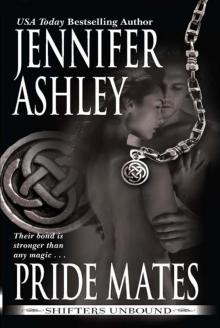 Pride Mates
Pride Mates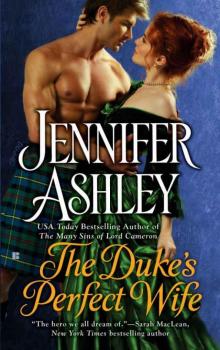 The Duke's Perfect Wife
The Duke's Perfect Wife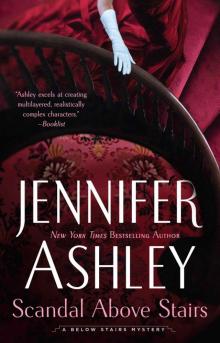 Scandal Above Stairs
Scandal Above Stairs White Tiger
White Tiger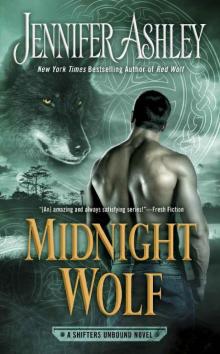 Midnight Wolf
Midnight Wolf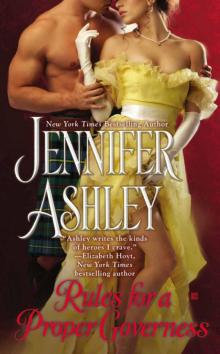 Rules for a Proper Governess
Rules for a Proper Governess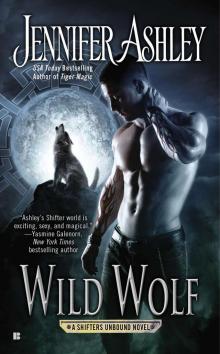 Wild Wolf
Wild Wolf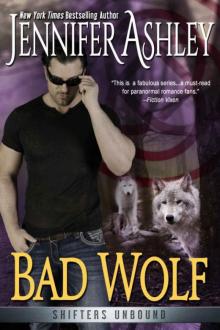 Bad Wolf
Bad Wolf Lion Eyes
Lion Eyes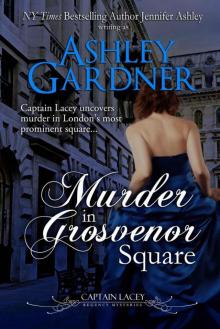 Murder in Grosvenor Square
Murder in Grosvenor Square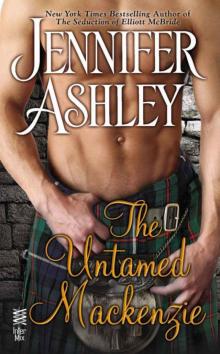 The Untamed MacKenzie
The Untamed MacKenzie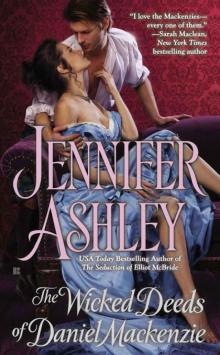 Wicked Deeds of Daniel Mackenzie
Wicked Deeds of Daniel Mackenzie Tiger Striped_Shifters Unbound
Tiger Striped_Shifters Unbound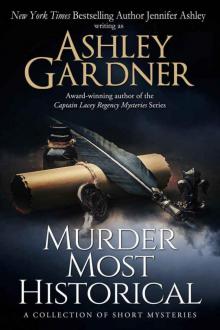 Murder Most Historical
Murder Most Historical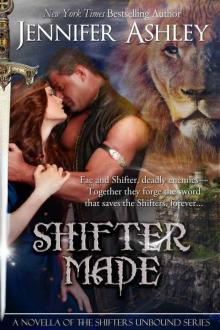 Shifter Made
Shifter Made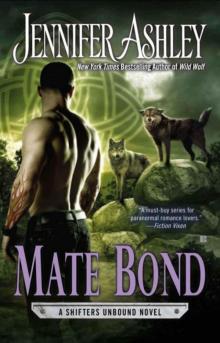 Mate Bond
Mate Bond Tiger Striped
Tiger Striped Bodyguard
Bodyguard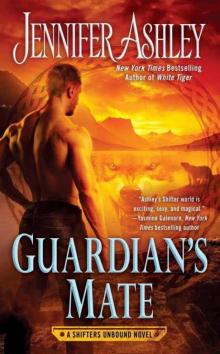 Guardian's Mate
Guardian's Mate From Jennifer Ashley, With Love
From Jennifer Ashley, With Love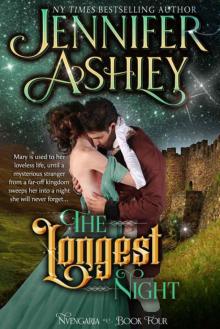 The Longest Night
The Longest Night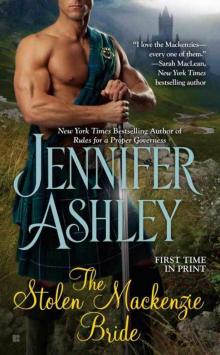 The Stolen Mackenzie Bride
The Stolen Mackenzie Bride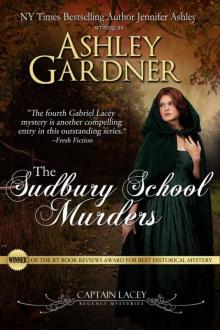 The Sudbury School Murders
The Sudbury School Murders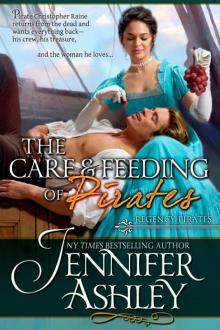 The Care & Feeding of Pirates
The Care & Feeding of Pirates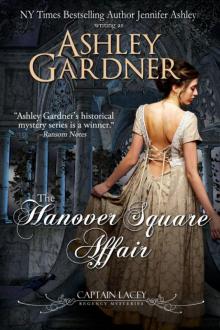 The Hanover Square Affair
The Hanover Square Affair Death Below Stairs
Death Below Stairs Wild Things
Wild Things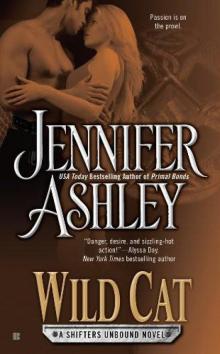 Wild Cat
Wild Cat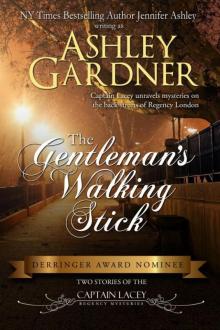 The Gentleman's Walking Stick
The Gentleman's Walking Stick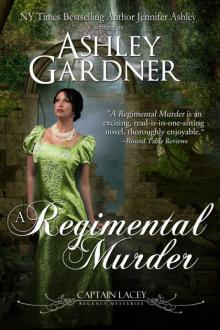 A Regimental Murder
A Regimental Murder Lone Wolf
Lone Wolf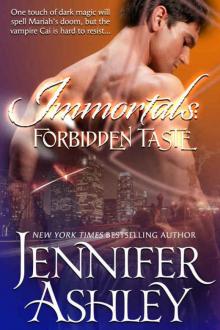 Forbidden Taste
Forbidden Taste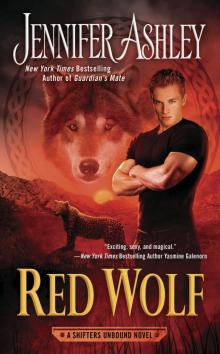 Red Wolf
Red Wolf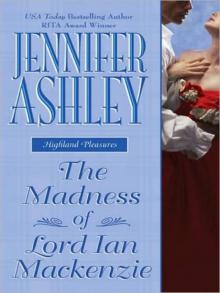 The Madness of Lord Ian Mackenzie
The Madness of Lord Ian Mackenzie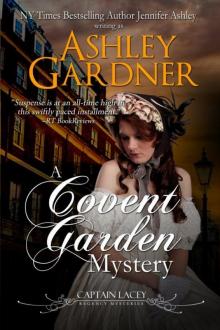 A Covent Garden Mystery
A Covent Garden Mystery The Pirate Next Door
The Pirate Next Door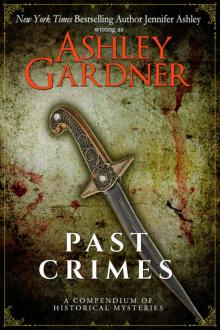 Past Crimes: A Compendium of Historical Mysteries
Past Crimes: A Compendium of Historical Mysteries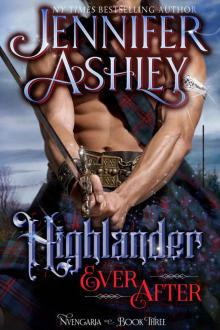 Highlander Ever After
Highlander Ever After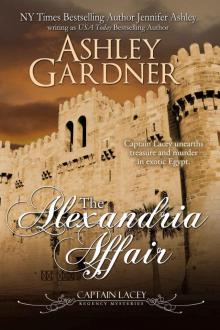 The Alexandria Affair
The Alexandria Affair A Shifter Christmas Carol
A Shifter Christmas Carol The Devilish Lord Will
The Devilish Lord Will Adam
Adam Kyle (Riding Hard Book 6)
Kyle (Riding Hard Book 6)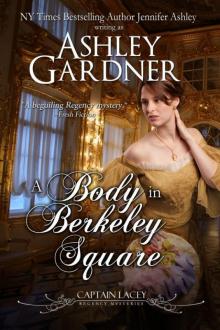 A Body in Berkeley Square
A Body in Berkeley Square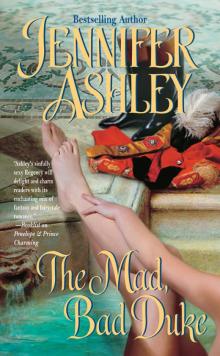 The Mad, Bad Duke
The Mad, Bad Duke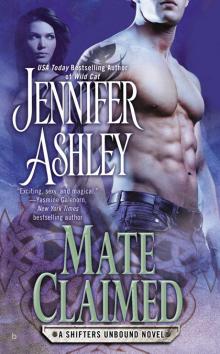 Mate Claimed
Mate Claimed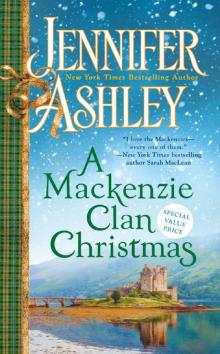 A Mackenzie Clan Christmas
A Mackenzie Clan Christmas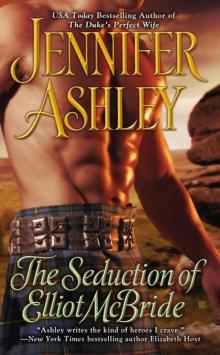 The Seduction of Elliot McBride
The Seduction of Elliot McBride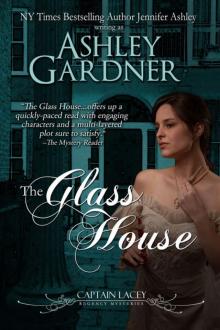 The Glass House
The Glass House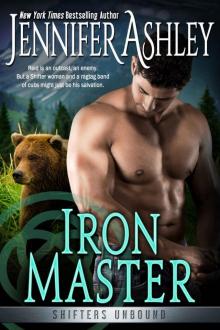 Iron Master (Shifters Unbound Book 12)
Iron Master (Shifters Unbound Book 12)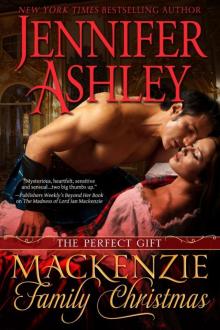 A Mackenzie Family Christmas: The Perfect Gift
A Mackenzie Family Christmas: The Perfect Gift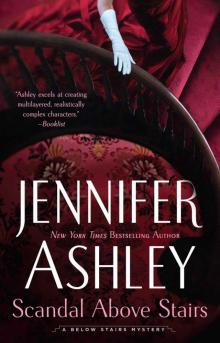 Scandal Above Stairs_A Below Stairs Mystery
Scandal Above Stairs_A Below Stairs Mystery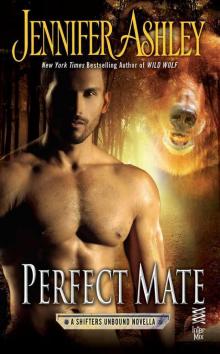 Perfect Mate
Perfect Mate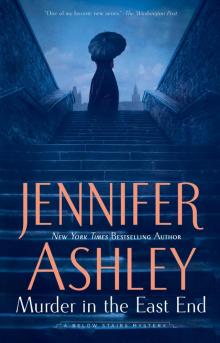 Murder in the East End
Murder in the East End Snowbound in Starlight Bend
Snowbound in Starlight Bend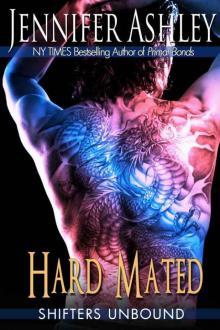 Hard Mated
Hard Mated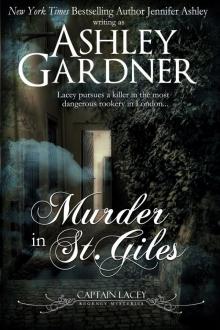 Murder in St. Giles
Murder in St. Giles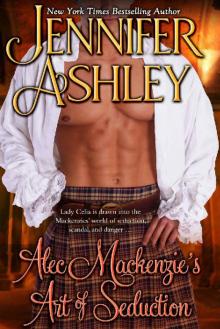 Alec Mackenzie's Art of Seduction
Alec Mackenzie's Art of Seduction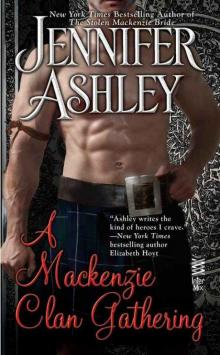 A MacKenzie Clan Gathering
A MacKenzie Clan Gathering Tyler
Tyler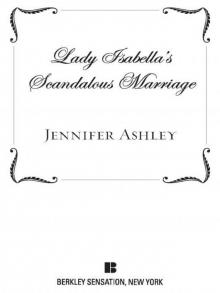 Lady Isabella's Scandalous Marriage
Lady Isabella's Scandalous Marriage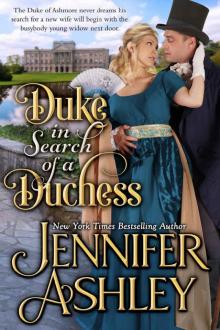 Duke in Search of a Duchess: Sweet Regency Romance
Duke in Search of a Duchess: Sweet Regency Romance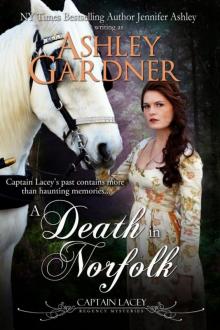 A Death in Norfolk
A Death in Norfolk Give Me One Night (McLaughlin Brothers Book 4)
Give Me One Night (McLaughlin Brothers Book 4)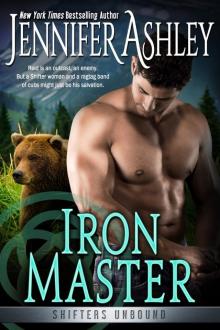 Iron Master
Iron Master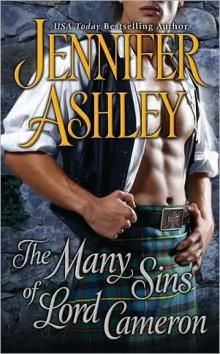 The Many Sins of Lord Cameron
The Many Sins of Lord Cameron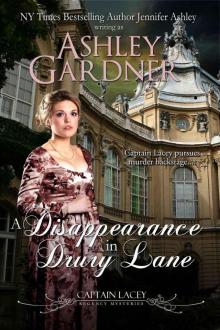 A Disappearance in Drury Lane
A Disappearance in Drury Lane Never Say Never (McLaughlin Brothers Book 3)
Never Say Never (McLaughlin Brothers Book 3) Death in Kew Gardens
Death in Kew Gardens Ross: Riding Hard, Book 5
Ross: Riding Hard, Book 5 Ray: Riding Hard
Ray: Riding Hard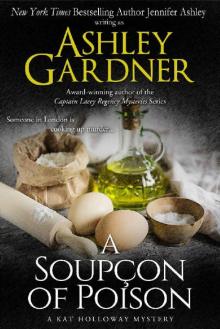 A Soupçon of Poison
A Soupçon of Poison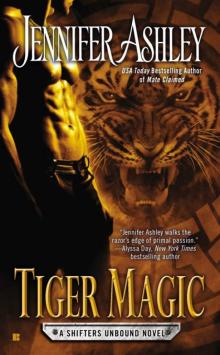 Tiger Magic
Tiger Magic The Pirate Hunter's Lady
The Pirate Hunter's Lady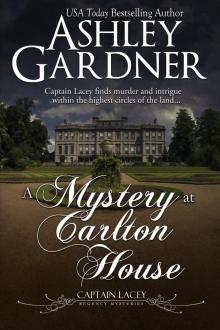 A Mystery at Carlton House
A Mystery at Carlton House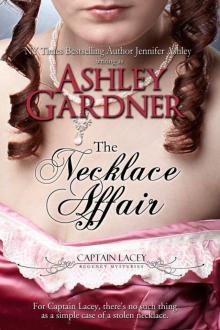 The Necklace Affair
The Necklace Affair Wolf Hunt
Wolf Hunt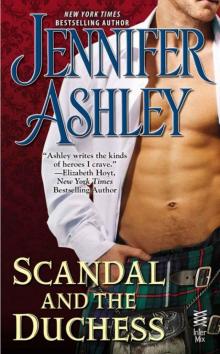 Scandal and the Duchess
Scandal and the Duchess Kyle
Kyle Why Don't You Stay? ... Forever (McLaughlin Brothers Book 2)
Why Don't You Stay? ... Forever (McLaughlin Brothers Book 2)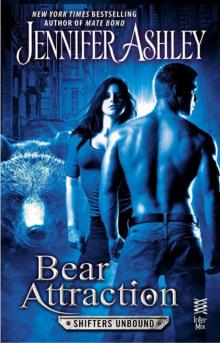 Bear Attraction
Bear Attraction The Gathering
The Gathering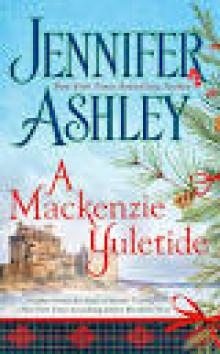 A Mackenzie Yuletide
A Mackenzie Yuletide Wild Things (Shifters Unbound #7.75)
Wild Things (Shifters Unbound #7.75) The Redeeming
The Redeeming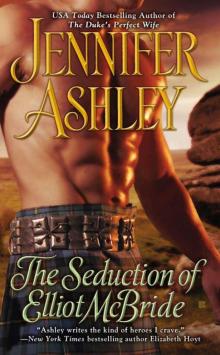 The Seduction of Elliot McBride hp-5
The Seduction of Elliot McBride hp-5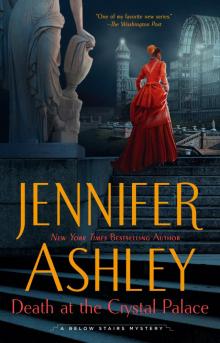 Death at the Crystal Palace
Death at the Crystal Palace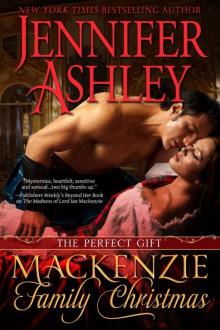 Mackenzie Family Christmas: The Perfect Gift (highland pleasures)
Mackenzie Family Christmas: The Perfect Gift (highland pleasures)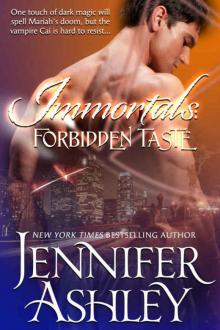 Forbidden Taste: A Vampire Romance (Immortals)
Forbidden Taste: A Vampire Romance (Immortals)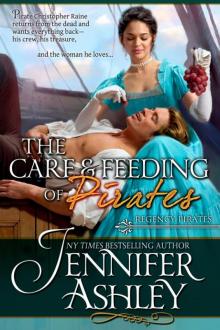 Care and Feeding of Pirates
Care and Feeding of Pirates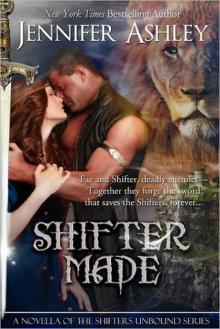 Shifter Made (shifters unbound)
Shifter Made (shifters unbound) Dark and Dangerous: Six-in-One Hot Paranormal Romances
Dark and Dangerous: Six-in-One Hot Paranormal Romances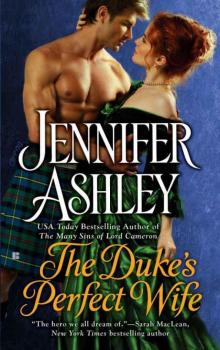 The Duke’s Perfect Wife hp-4
The Duke’s Perfect Wife hp-4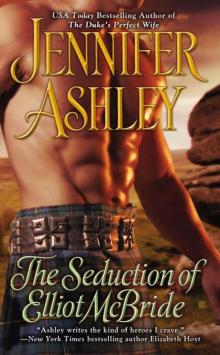 The Seduction of Elliot McBride (Mackenzies Series)
The Seduction of Elliot McBride (Mackenzies Series)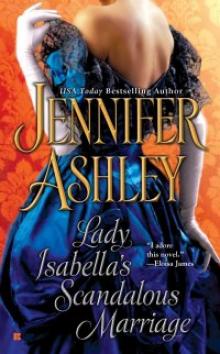 Lady Isabella's Scandalous Marriage hp-2
Lady Isabella's Scandalous Marriage hp-2 BodyGuard (Butterscotch Martini Shots Book 2)
BodyGuard (Butterscotch Martini Shots Book 2)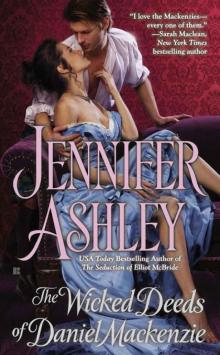 The Wicked Deeds of Daniel Mackenzie hp-6
The Wicked Deeds of Daniel Mackenzie hp-6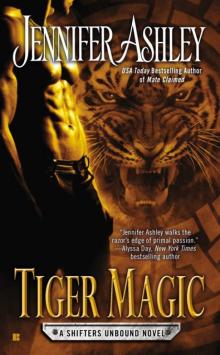 Tiger Magic su-5
Tiger Magic su-5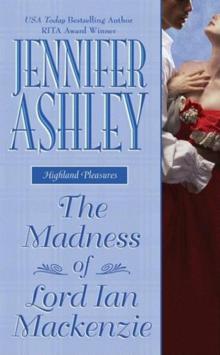 The Madness Of Lord Ian Mackenzie hp-1
The Madness Of Lord Ian Mackenzie hp-1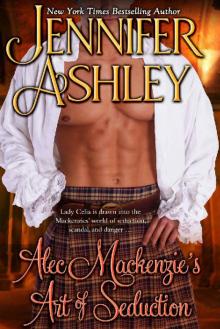 Alec Mackenzie's Art of Seduction: Mackenzies (Mackenzies Series Book 9)
Alec Mackenzie's Art of Seduction: Mackenzies (Mackenzies Series Book 9)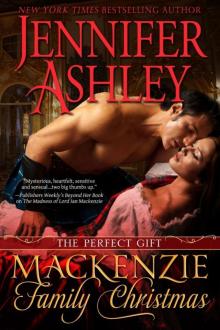 Mackenzie Family Christmas: The Perfect Gift
Mackenzie Family Christmas: The Perfect Gift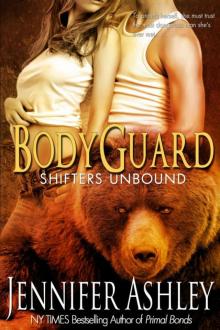 Bodyguard (Shifters Unbound #2.5)
Bodyguard (Shifters Unbound #2.5)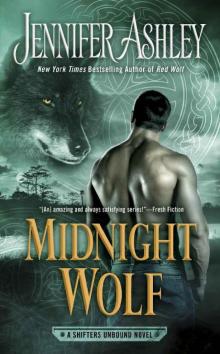 Midnight Wolf (A Shifters Unbound Novel)
Midnight Wolf (A Shifters Unbound Novel) White Tiger (A Shifter's Unbound Novel)
White Tiger (A Shifter's Unbound Novel) Cowboys Last All Night
Cowboys Last All Night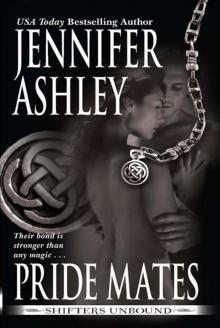 Pride Mates su-1
Pride Mates su-1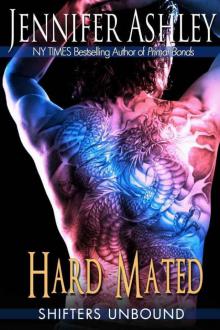 Hard Mated (shifters unbound )
Hard Mated (shifters unbound )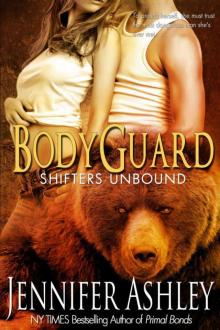 Bodyguard (shifters unbound )
Bodyguard (shifters unbound ) Snowbound in Starlight Bend: A Riding Hard Novella
Snowbound in Starlight Bend: A Riding Hard Novella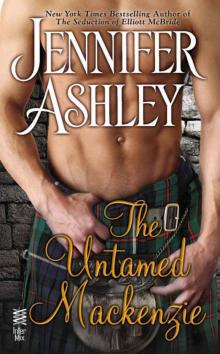 The Untamed Mackenzie (highland pleasures)
The Untamed Mackenzie (highland pleasures)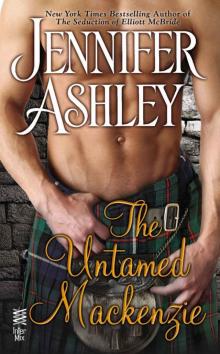 The Untamed Mackenzie (Mackenzies Series)
The Untamed Mackenzie (Mackenzies Series)![Highland Pleasures [6] The Wicked Deeds of Daniel Mackenzie Read online](http://i1.bookreadfree.com/i2/04/07/highland_pleasures_6_the_wicked_deeds_of_daniel_mackenzie_preview.jpg) Highland Pleasures [6] The Wicked Deeds of Daniel Mackenzie
Highland Pleasures [6] The Wicked Deeds of Daniel Mackenzie Lone Wolf (shifters unbound)
Lone Wolf (shifters unbound)![Shifters Unbound [5] Tiger Magic Read online](http://i1.bookreadfree.com/i2/04/11/shifters_unbound_5_tiger_magic_preview.jpg) Shifters Unbound [5] Tiger Magic
Shifters Unbound [5] Tiger Magic Tyler (Riding Hard Book 4)
Tyler (Riding Hard Book 4) Ross
Ross Bad Boys of the Night: Eight Sizzling Paranormal Romances: Paranormal Romance Boxed Set
Bad Boys of the Night: Eight Sizzling Paranormal Romances: Paranormal Romance Boxed Set From Jennifer Ashley, With Love: Three Paranormal Romances from Bestselling Series
From Jennifer Ashley, With Love: Three Paranormal Romances from Bestselling Series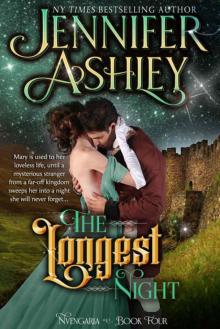 The Longest Night: Fantasy Romance (Nvengaria Book 4)
The Longest Night: Fantasy Romance (Nvengaria Book 4)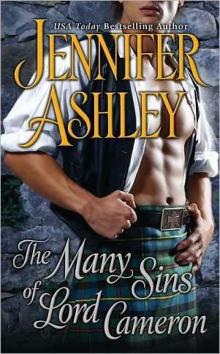 The Many Sins of Lord Cameron hp-3
The Many Sins of Lord Cameron hp-3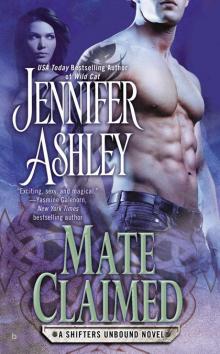 Mate Claimed su-4
Mate Claimed su-4